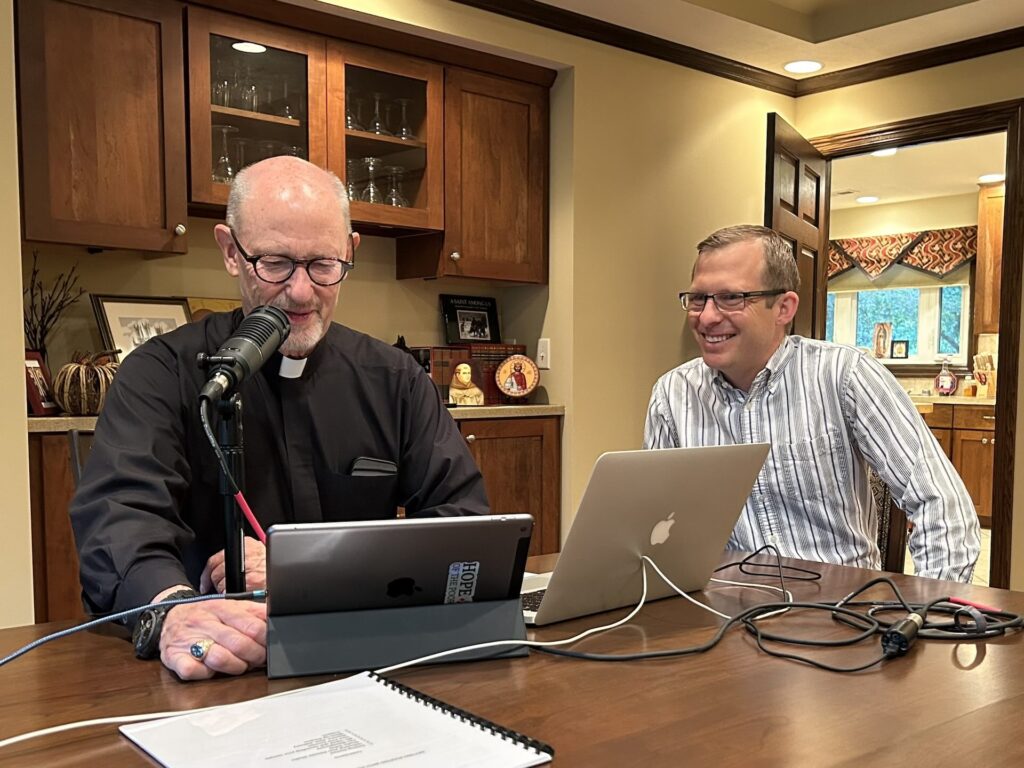Now the man Moses was very meek, more than all men that were on the face of the earth.
(Numbers 12:3)Take my yoke upon you, and learn from me; for I am gentle and lowly in heart, and you will find rest for your souls.
For my yoke is easy and my burden is light.
(Matthew 11:29-30)
The English language has never found a good word to translate today’s fruit of the Spirit.
The two words most often used, gentleness and meekness, give an impression of weakness or lack of forcefulness, and describe the quality of a person’s actions.
But this fruit of the Spirit is something different: it is founded on a strong consciousness of God’s power, and it involves orienting one’s mind and spirit toward God.
It is close to the quality of humility.
It should tell us something that the scripture calls Moses the meekest person on earth, and that Jesus uses the same word to describe his own character.
Neither Moses nor Jesus was a “soft” sort of person.
Both were impressive leaders, both faced conflict with courage, and both could say and do very decisive things.
What characterized everything they did was that they put all their trust, not in themselves, but in God.
Gentleness, or meekness, is the quality of the person who has recognized that God is truly the Lord.
Moses was meek because he understood that all the wonders done by his hand were accomplished not by him, but by God.
He knew that he had not seized his position as a leader of God’s people for himself, but had been chosen by the Lord.
Jesus, even more than Moses, kept all his attention on what he saw the Father doing: “I can do nothing on my own authority; as I hear, I judge; and my judgment is just, because I seek not my own will but the will of him who sent me” (John 5:30).
To be meek is to see both God and ourselves with clarity.
It is to renounce the silly claim we so often make of owning our own lives; to recognize that we are utterly dependent on God and are held in existence, moment by moment, by his power.
It is to reject the prideful desire to make ourselves independent of the Source of life and goodness, and instead to joyfully embrace the fact that we are a creature of another.
Meekness toward God does not lead to weakness; quite the opposite.
The man who understands his place as a son and servant of God, backed by all the powers of heaven, will find constantly renewed courage, hope, and joy.
It is a terrible burden to be saddled with our fallen selves.
It is a great freedom to throw off that troublesome burden and to take up the yoke of Christ.
The meek man is humble before God and others.
He is a “gentleman” in the original meaning of that word.
He doesn’t make silly boasts about himself.
He is not constantly trying to show that he is as good as or better than those around him.
He is free from the need to pile up excuses to justify his behavior.
He treats others with an easy respect and dignity because he does not compete with them for a sense of self-worth.
He is strong and confident in his place with his heavenly Father, for he knows that his Father will establish him in life and provide all that he needs.
The one who rules all of heaven and earth can certainly rule so small a thing as our lives.
Let us once again ask for a greater measure of this fruit of meekness as exemplified by Christ.
It is the mark of our royal birth, for the meek “shall inherit the earth” (Matthew 5:5).
Today in prayer, let us remember that God is the Lord, and let us place everything we are holding onto into his hands.




